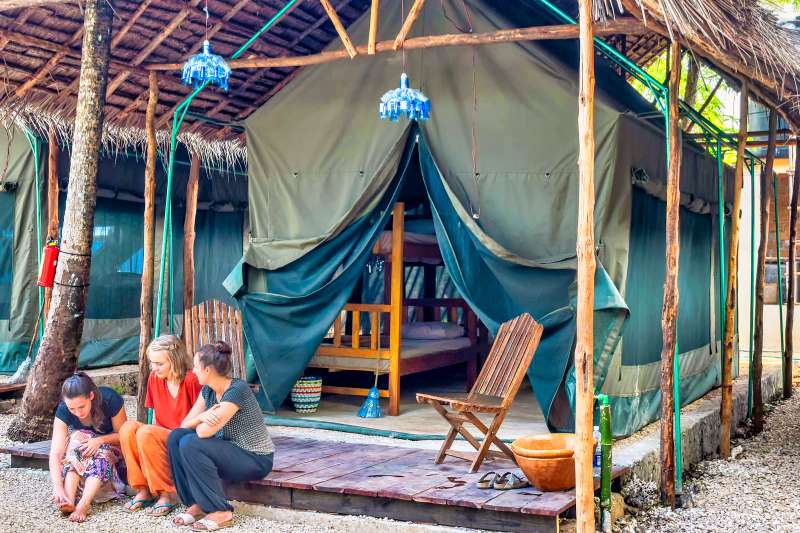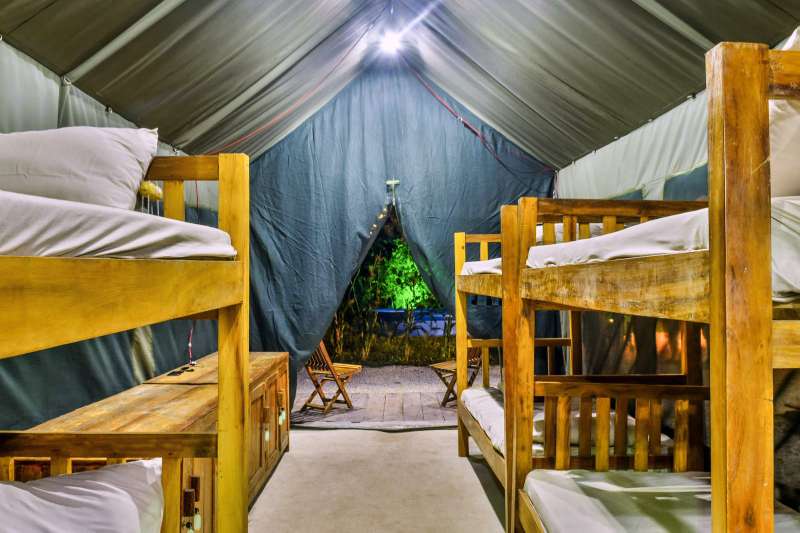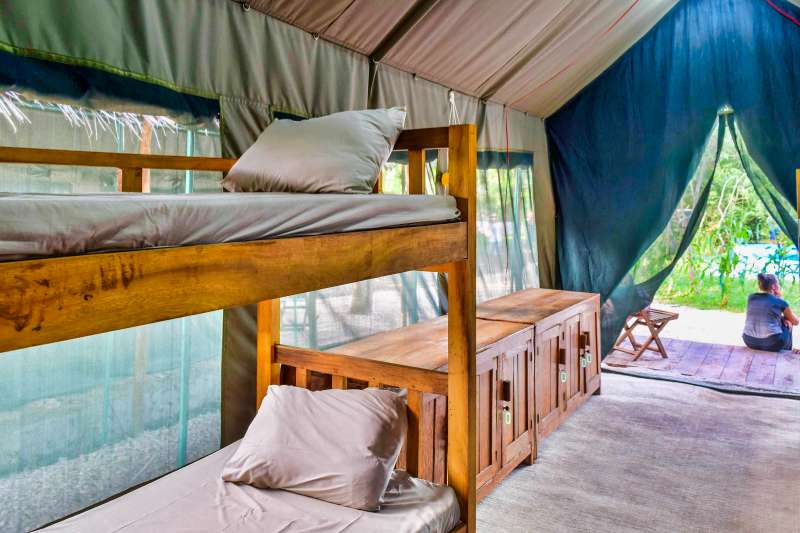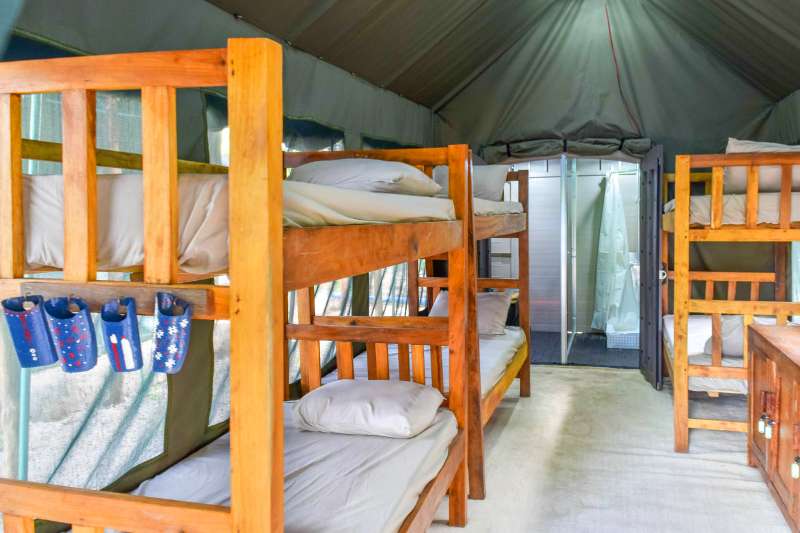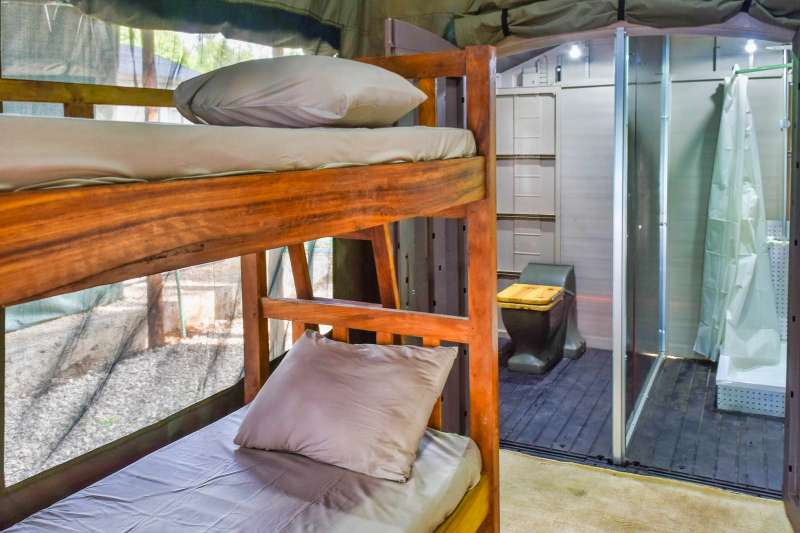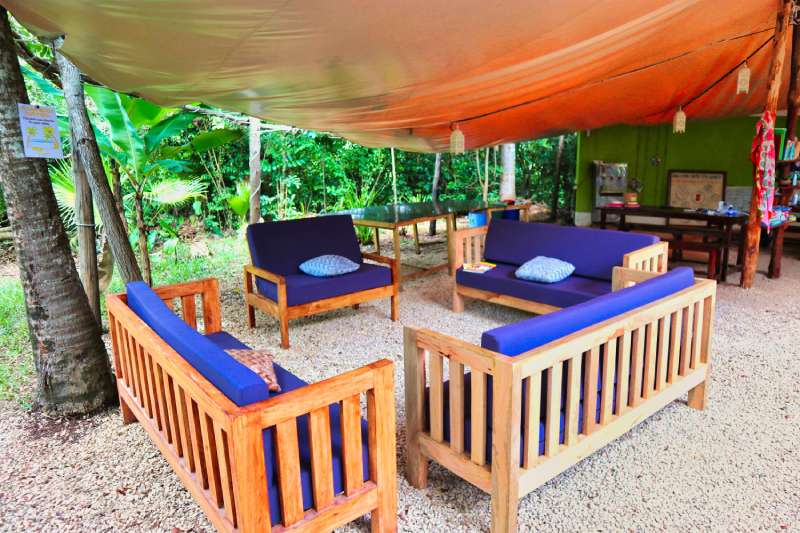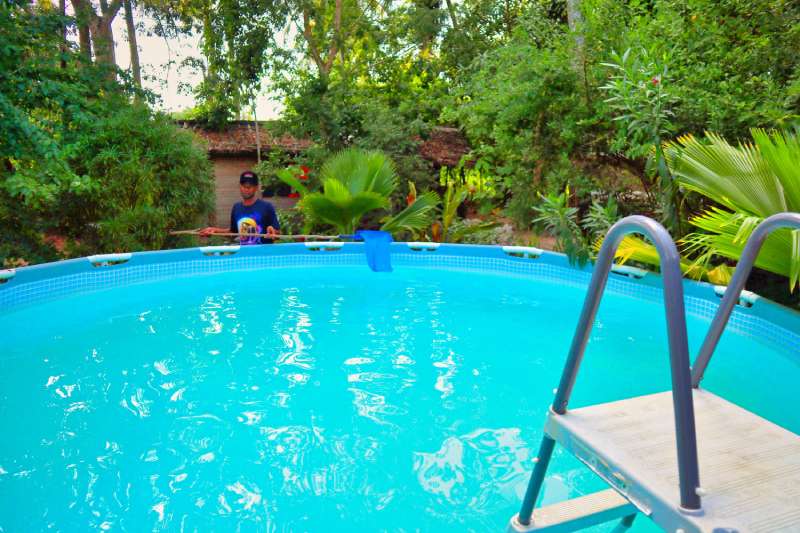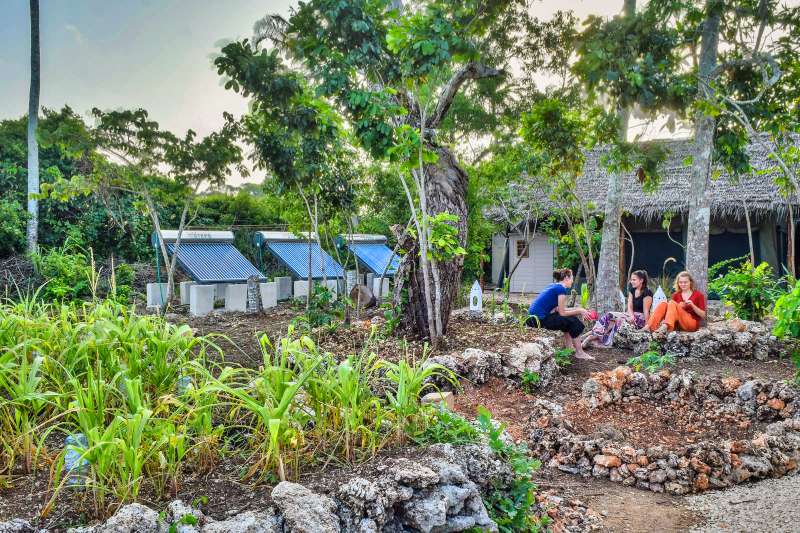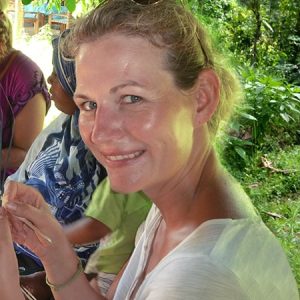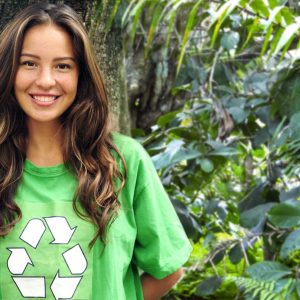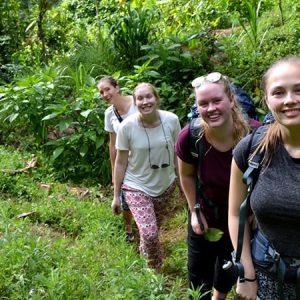4 days / 3 nights Ecotourism Package in Zanzibar
USD 260.00
The Jozani forest National Park area in southern Zanzibar is the best spot for eco tourism on the island! Besides the actual Jozani Forest National Park, which is the largest near-natural tropical rain forest in Zanzibar and home to the endemic Red Colobus Monkey, within a radius of 20 km you can reach the protected areas of Chwaka Bay and Menai Bay with its sandbanks, uninhabited islets, coral reefs and marine habitats, which are home to dolphins, sea turtles, whales and dugongs, and Uzi Island, which is surrounded by Zanzibar’s largest mangrove area, breeding ground to many birds and sea animals. Within this heaven of nature there are a few villages that haven’t changed a lot during the last centuries, with the villagers still being primarily small-scale farmers and fishermen. The following ecotourism package is offered by the Muungoni Community Tourism Initiative, a group of locals who have understood that the nature around their villages and their local culture are valuable assets to attract tourists, and that conservation of their environment and local culture can guarantee them an income and contribute to the sustainable development of the area. 50% of the profits made through the ecotourism activities are used for the improvement of the living conditions in the village of Muungoni, such as improvements to water supply, and to operate the community kindergarten and school. By coming to Muungoni you will directly support the development of the village. The ecotourism packages and services delivered by the Muungoni Community Initiative have been developed in close cooperation with World Unite!. The 4 days/3 nights package provides you the opportunity to visit Jozani Forest National Park, to experience the most beautiful nature and the traditional way life in a remote Zanzibar coastal village, to interact with the friendly locals, and to visit sustainable conservation projects.
After your arrival in Muungoni you can check in at Mother Nature Forest Camp from 12am. You will receive a welcome drink of fresh tropical fruit juice. Depending on your arrival time you will first visit Zanzibar Turtles and Tortoise Land, which is a little park where local reptiles for educational purposes are kept. The park invites school classes from all over Zanzibar to provide them a scientific approach to animals in order to bust superstitious beliefs, which unfortunately still today often result in the killing of wildlife. After this, you will do a Cultural Tour of the village. During this varied tour you will get an insight into the life in the village which hasn’t changed a lot over the centuries. Learn how the local live in close relation with the nature around them, which provides them with a lot of what they need in their daily lives. You will also see the water supply system and the school which have been financed through the revenues of ecotourism. You get the opportunity to participate in activities such as weaving baskets and tasting local fruits and sweets. If you arrive late, you will only visit Zanzibar Turtles and Tortoise Land today and do the cultural village tour the next day. The Community group will serve dinner at your accommodation where you will experience an exciting night in the middle of nature, where you can hear the sound of animals such as nocturnal birds, bush babies, and Red Colobus Monkeys.
After your arrival in Muungoni you can check in at Mother Nature Forest Camp from 12am. You will receive a welcome drink of fresh tropical fruit juice. Depending on your arrival time you will first visit Zanzibar Turtles and Tortoise Land, which is a little park where local reptiles for educational purposes are kept. The park invites school classes from all over Zanzibar to provide them a scientific approach to animals in order to bust superstitious beliefs, which unfortunately still today often result in the killing of wildlife. After this, you will do a Cultural Tour of the village. During this varied tour you will get an insight into the life in the village which hasn’t changed a lot over the centuries. Learn how the local live in close relation with the nature around them, which provides them with a lot of what they need in their daily lives. You will also see the water supply system and the school which have been financed through the revenues of ecotourism. You get the opportunity to participate in activities such as weaving baskets and tasting local fruits and sweets. If you arrive late, you will only visit Zanzibar Turtles and Tortoise Land today and do the cultural village tour the next day. The Community group will serve dinner at your accommoation where you will experience an exciting night in the middle of nature, where you can hear the sound of animals such as nocturnal birds, bush babies, and Red Colobus Monkeys.
After breakfast served at your accommodation you will go on a Mangroves Canoe Trip*. You will be surrounded by the quiet, natural environment of this special forest, and get the chance to get close to birds and other animals in their natural habitat. The mangroves have an important role in the conservation of many animal species that depend on the mangroves for their existence, and their protection is paramount. If the cultural tour of the village has been done the day before, you can book an extension of the canoe trip to Uzi Island. This inhabited island which has two small villages is even more remote and life is even more unchanged compared to the villages on Zanzibar’s main island Unguja. If you book this extension, lunch will be served in Uzi Island. If the Cultural Tour of the village has not been done the day before, you will do it on this day. The order of the activities will depend on the tide. Lunch will take place in between the two activities. You will take dinner and stay overnight at your accommodation. * If you don’t wish to go on the canoe trip there is an alternative option of going on a half-day Bicycle Tour to Makunduchi Village in the south of Zanzibar. Some visits of this trip include an impressive cave with stalactites and stalagmites, a visit to a real traditional voodoo priest who will demonstrate some of his magic, climbing up the highest lighthouse of Zanzibar, and entering Zanzibar’s second biggest mosque in Makunduchi. This tour takes about 5 hours, including a 1-hour lunch break at the beach.
After breakfast served at your accommodation you will go on a Mangroves Canoe Trip*. You will be surrounded by the quiet, natural environment of this special forest, and get the chance to get close to birds and other animals in their natural habitat. The mangroves have an important role in the conservation of many animal species that depend on the mangroves for their existence, and their protection is paramount. If the cultural tour of the village has been done the day before, you can book an extension of the canoe trip to Uzi Island. This inhabited island which has two small villages is even more remote and life is even more unchanged compared to the villages on Zanzibar’s main island Unguja. If you book this extension, lunch will be served in Uzi Island. If the Cultural Tour of the village has not been done the day before, you will do it on this day. The order of the activities will depend on the tide. Lunch will take place in between the two activities. You will take dinner and stay overnight at your accommodation. * If you don’t wish to go on the canoe trip there is an alternative option of going on a half-day Bicycle Tour to Makunduchi Village in the south of Zanzibar. Some visits of this trip include an impressive cave with stalactites and stalagmites, a visit to a real traditional voodoo priest who will demonstrate some of his magic, climbing up the highest lighthouse of Zanzibar, and entering Zanzibar’s second biggest mosque in Makunduchi. This tour takes about 5 hours, including a 1-hour lunch break at the beach.
After breakfast at the accommodation, on today’s program you will go by bicycle with a guide to Jozani Forest National Park. At Jozani Forest National Park we will spot and closely observe Red Colobus Monkeys, which are endemic to Zanzibar, go on a walk through the deep groundwater forest with its gigantic vegetation, and walk through the mangrove forest on a boardwalk. Also we will visit a marine turtle conservation project. We will then proceed to the community development project ‘DADA collective’, which is dedicated to skill development and empowerment of local girls and women, where we will take lunch and see a presentation of how to use a traditional loom. You can see the many skillful handcrafts produced by the collective. The next stop on this day is the Zanzibar Butterfly Centre in Pete Village, East Africa’s largest aviary for butterflies, where you can see all local species of butterflies. The centre is a project of sustainable income generation for locals. As butterflies only have a relatively short lifespan, the centre has a constant need of new butterflies, which are grown by villagers of Pete under the supervision of a biologist and paid for by the Butterfly Centre through the revenues of tourism. We will then return to to Muungoni by bicycle and take dinner and stay overnight at the accommodation.
After breakfast at the accommodation, on today’s program you will go by bicycle with a guide to Jozani Forest National Park. At Jozani Forest National Park we will spot and closely observe Red Colobus Monkeys, which are endemic to Zanzibar, go on a walk through the deep groundwater forest with its gigantic vegetation, and walk through the mangrove forest on a boardwalk. Also we will visit a marine turtle conservation project. We will then proceed to the community development project ‘DADA collective’, which is dedicated to skill development and empowerment of local girls and women, where we will take lunch and see a presentation of how to use a traditional loom. You can see the many skillful handcrafts produced by the collective. The next stop on this day is the Zanzibar Butterfly Centre in Pete Village, East Africa’s largest aviary for butterflies, where you can see all local species of butterflies. The centre is a project of sustainable income generation for locals. As butterflies only have a relatively short lifespan, the centre has a constant need of new butterflies, which are grown by villagers of Pete under the supervision of a biologist and paid for by the Butterfly Centre through the revenues of tourism. We will then return to to Muungoni by bicycle and take dinner and stay overnight at the accommodation.
After breakfast at the accommodation we will walk a Nature Trail during which you will receive a full explanation on the plants you see and their uses for the local population. The locals depend heavily on the proceeds of the forest, not only for food but also for medicines, as construction materials, and other needs. You will be surprised by the many uses and knowledge the people have about the plants found in the natural environment! World Unite! has sponsored vocational training in permaculture farming, a scientific method of sustainable farming to members of the Muungoni Community Tourism Initiative. You will also visit such permaculture gardens where sustainable food is sourced from, using as little resources as possible.
After breakfast at the accommodation we will walk a Nature Trail during which you will receive a full explanation on the plants you see and their uses for the local population. The locals depend heavily on the proceeds of the forest, not only for food but also for medicines, as construction materials, and other needs. You will be surprised by the many uses and knowledge the people have about the plants found in the natural environment! World Unite! has sponsored vocational training in permaculture farming, a scientific method of sustainable farming to members of the Muungoni Community Tourism Initiative. You will also visit such permaculture gardens where sustainable food is sourced from, using as little resources as possible.
Just next to Jozani Forest National Park in southern Zanzibar you will find our Mother Nature Forest Camp on a natural forest ground. There are three comfortable safari tents (6 m x 3 m x 3.50 m high), which are shared by a maximum of 6 participants, each featuring 3 bunk beds with mosquito nets. The tents are on platforms and covered by a solid wooden thatched roof, protecting the tents from rain and sun. The tents have large windows with mosquito netting, allowing wind to come in for an enjoyable temperature inside the tent. Each tent has lockable cabinet compartments for every participant. A solid building hosting a toilet and a separate shower with cold and hot water is attached to and accessible from inside every tent. In front of each tent you can sit on a wooden verandah deck and enjoy the tropical forest atmosphere. Just next to the tents there is a large terrace, serving as communal space, covered by a large sail that provides protection from sun and rain. It is a space for everyone to relax, work, and enjoy the meals. The kitchen is next to the terrace, catering for three meals per day. There is a drinking water outlet at the kitchen where you can refill your bottles with filtered and chilled drinking water at no extra cost. There is also an additional toilet at the communal area. The tropical garden of the Mother Nature Forest Camp has a lawn for sunbathing and a refreshing small pool. In the garden there are also several fruit trees and the Keyhole Gardens where we grow vegetables, lettuces, herbs and spices in a resource-saving way for your meals. Ecological aspects were of great importance when building the Mother Nature Forest Camp. All illumination and the mobile phone chargers we provide are solar-powered. The hot water of the showers comes from solar water heaters. Local and renewable construction materials have been used as far as possible. The greywater from the showers is filtered through several layers of gravel and flowing into a small biotope, which is planted with yams and reed, where the water infiltrates or evaporates. You can find creative recycled artefacts all around the camp, such as lampsheds and curtains made from recycled plastic bottles by World Unite! volunteers. The camp has three watchmen, providing 24 hours security. Valuables can be stored at a safe deposit box. We try to separate the bed occupancy by gender, however we cannot guarantee this, depending on varying booking numbers of males and females. See image gallery of Mother Nature Forest Camp:
Your meals will be served at your accommodation during the time you are checked in. The meals all consist of locally produced home-made food and the menu is chosen depending on season and availability. For breakfast you can expect toast with jam, pancakes and coffee. Lunch and dinner can include rice, ugali (African cornmeal mash), boiled potatoes with fish or chicken and/or different kinds of vegetables (like carrot or spinach) in coconut sauce. It is possible to request vegetarian and vegan meals. There is a terrace to have your additional meals if you book an additional lunch/dinner after you check out from your accommodation. You can store your luggage at Mother Nature Forest Camp.
This package is usually combined with other activities and accommodation in Zanzibar, Tanzania and other neigbouring destinations. If you want an independent expert consultation about eco-tourism in East Africa, we can plan your whole eco-holiday in East Africa!
Day 1
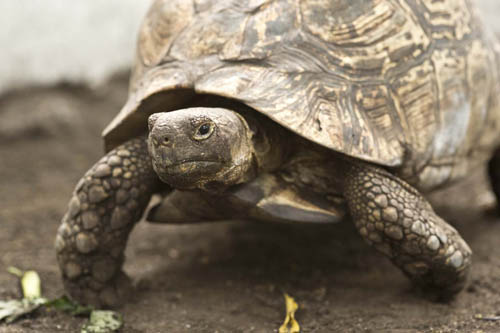
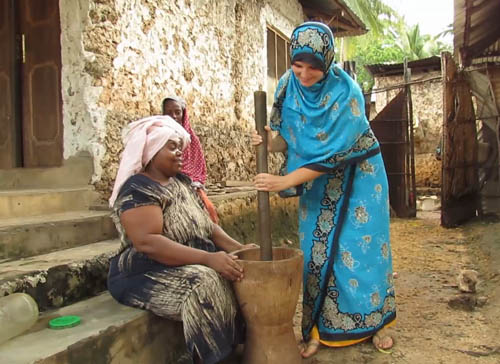
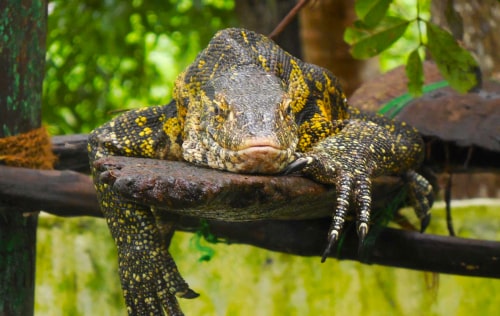
Day 2
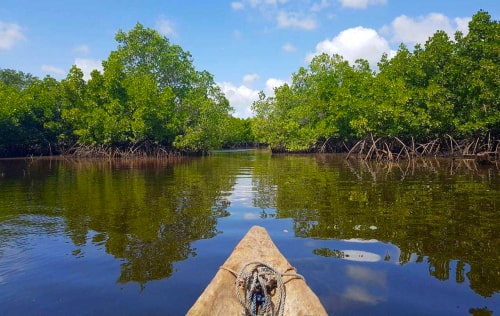
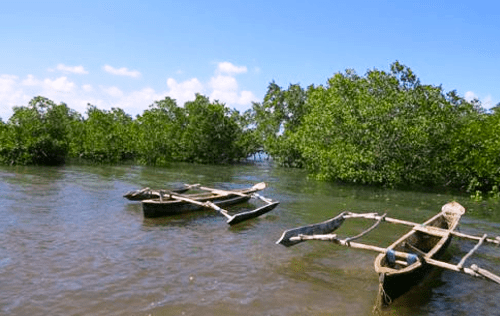
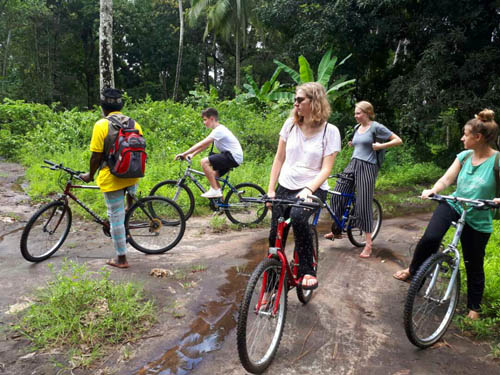

Day 3
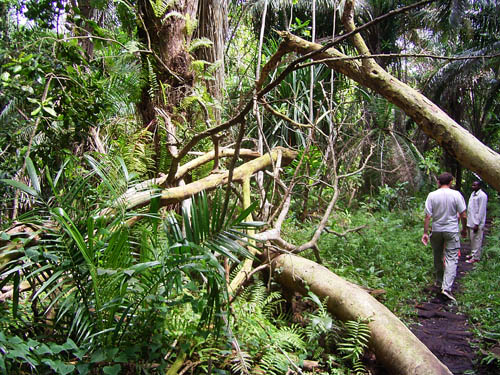
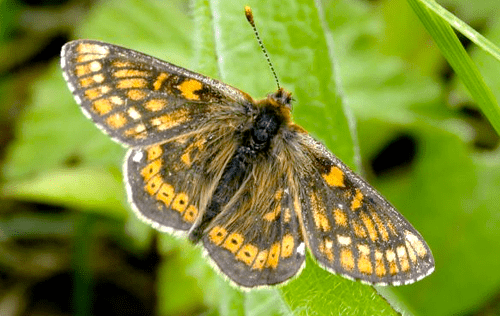
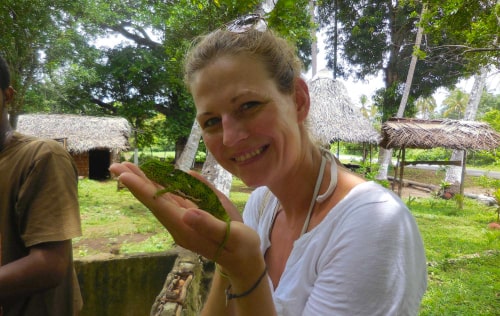
Day 4
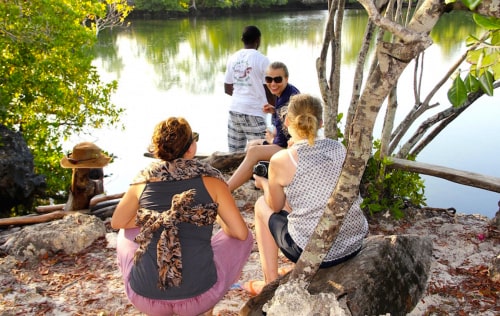

Accommodations and Meals
Package includes
Need more help planning your eco-holiday in East Africa?
🡆 50 USD discount per each adult from 2 to 4 people
🡆 80 USD discount per each adult from 5 people
4 days / 3 nights Ecotourism Package in Zanzibar
USD 260.00




